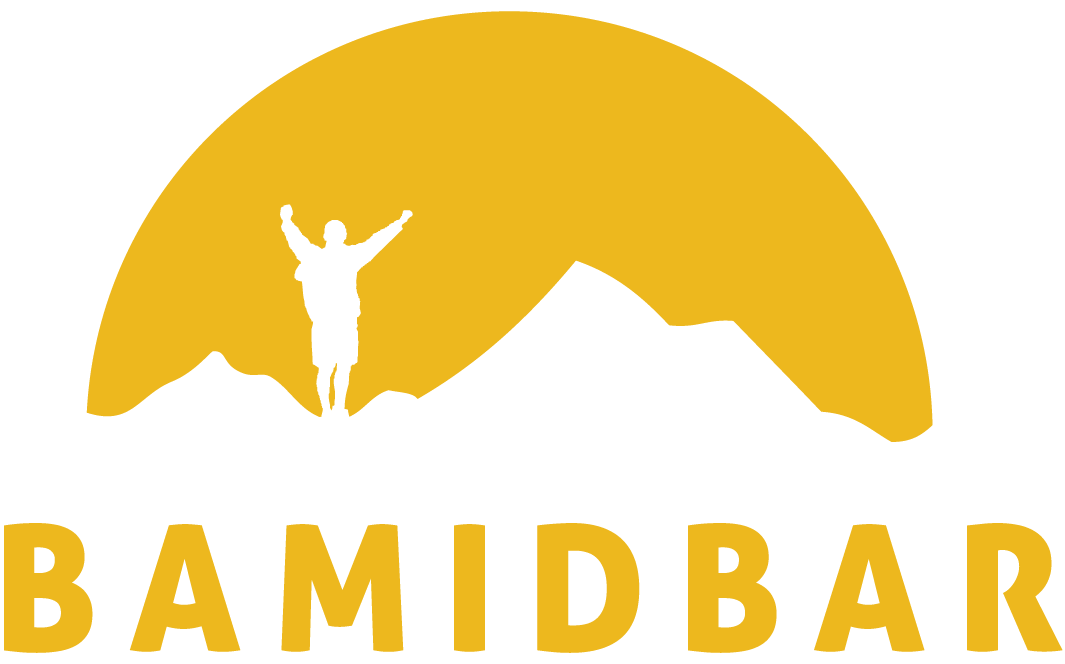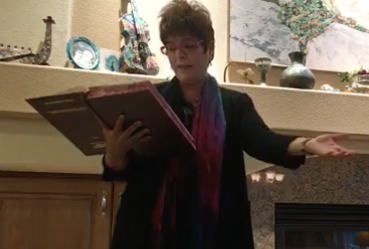Over one year ago, Ramah in the Rockies’ staff and key community stakeholders joined together to discuss the need for a Jewish response to addiction and mental health conditions. This past Wednesday night, over 30 stakeholders from the greater Denver area joined together to celebrate how far Ramah in the Rockies has come since that initial meeting. We have built a business plan, developed the program, raised funds, and hired staff. In June, BaMidbar Wilderness Therapy will open its admissions, and next January we will welcome our first cohort. For those who were not able to join us on Wednesday, I want to take the time to share my personal story, and why I work to ensure that our community has a Jewish response to addiction.The meeting was also videotaped, and can be seen here.
When I was in high school, my brother was diagnosed with schizoaffective disorder. He was struggling with addiction, and overdosed and attempted suicide many times. He was in and out of the hospital, and I did not think he would live to see me graduate high school. At the same time, a peer committed suicide and another friend overdosed and passed away. I was lost and afraid and self-destructive, and with the way my world seemed to be falling apart, I wasn’t sure I’d get to graduation myself. In April of my fifteenth year, just before Pesach, my parents enrolled me in a wilderness therapy program in Utah.
The eight weeks I spent in that program changed my life, and transformed how I move through the world. After graduating college, I went back to work in wilderness therapy as a field guide, before transitioning to the administrative side of wilderness-based programs. I had the pleasure of working with Ramah in the Rockies in 2010 and 2011, and at Ramah I saw outdoor experiential learning merge with Jewish learning, values, and traditions. In my time before and since then, working in wilderness-based programs focused on conservation, recreation, therapy, and workforce development, I have never seen a combination that more powerfully impacts personal identity, the development of personal values, and a sense of community. The Jewish framework provided a means to translate the lessons learned in an intensely isolated environment, to an individual’s identity, values, and community back in the “real world”. When I heard from Eliav that Ramah in the Rockies was starting a Jewish wilderness therapy program, I knew there was the potential there to make something truly remarkable, able to literally save lives, and provide something above and beyond the traditional wilderness therapy model.
What is wilderness therapy, and why go to the wilderness, you might be asking? Why can’t this type of treatment take place in town? There’s a Chasidic tale I want to share, to help answer this question. A boy goes into the woods every day, and his father, a bit concerned, asks him, “Why do you go into the woods?” The boy, matter of factly, states that he goes to find G-d. His father looks at him and says, “That’s wonderful, I’m so glad you’re seeking opportunities to connect with G-d, but don’t you know, G-d is the same everywhere? You don’t need to go to the forest to find him.” The boy responds, “I know G-d is the same everywhere, but I am not.”
The wilderness is humbling. It invites vulnerability, and decreases distractions. Free of the constant cultural stimuli experienced in today’s world, BaMidbar’s students will have a fresh start. Our program will use wilderness and adventure-based experiences as a vehicle to promote therapeutic growth of students, in a process guided and directed by a licensed mental health professional. Program activities include backcountry travel and wilderness and group living experiences, during which clinical assessment, treatment planning, and clinical interventions take place. Students will have individual, group, and family therapy sessions, and participate in activities that foster social growth and positive relationships. The wilderness environment and group living provides a safe and controlled opportunity to apply therapeutic concepts to real life situations.
In this environment, BaMidbar’s program will focus on four key outcomes areas:
-
Self-concept, or development of one’s personal understanding of the self and one’s identity
-
Fundamental and technical skill development, such as conflict management, relapse prevention strategies, and the sense of pride and accomplishment that comes with task mastery
-
Improved family dynamics, through a family-system’s approach
-
And the role one’s community plays in whole health wellness, and the toolkit to develop and sustain healthy, supportive relationships
When I was 15, I spent Pesach in the wilderness, in the Midbar. While the wilderness therapy program I attended was not in the least bit Jewish, my identity as a Jew was fundamental to what I gained from that program. Mitzrayim, Egypt, means “the narrow place.” In each generation, we are supposed to celebrate our liberation from Mitzrayim. We were slaves, but now we are free. In every generation, we are bound; we are held back, by external events and internal beliefs. By depression, trauma, addiction, and immobilizing self-doubt or fear of the unknown. And every year, we have the opportunity to explore those things that hold us back and say, “No. I will not let this stop me from living my life to its full potential, living the life I want to lead.”
As I struggled with the death of close friends, the fear of losing a loved one, and my own debilitating depression, and as I celebrated Pesach alone in the wilderness, away from my family and a Jewish community, this concept of self-liberation from Mitzrayim profoundly impacted my journey and experience. Our tradition provides such powerful guidance, support, and strength. At BaMidbar, we will use the strength of the Jewish tradition as the foundation for our program, the framework that gives greater depth to the experience. Through Jewish metaphor, storytelling, values, and practice, we have the opportunity to transform an already powerful model, to provide a uniquely impactful Jewish pathway to recovery.
I am excited to announce that, because of all of your support, BaMidbar will be opening programming in January, and will be hosting two 54-day sessions serving a total of 16-28 individuals between January-May of next year. We are in the process of hiring our clinical director and spiritual counselor, and over the coming months will be finalizing our curriculum, hiring and training our seasonal staff, and getting the word out about the program.
In our next blog post, I will share more about how you can get involved in this important endeavor! It is because of the tremendous support of the community that we have reached where we are today.

